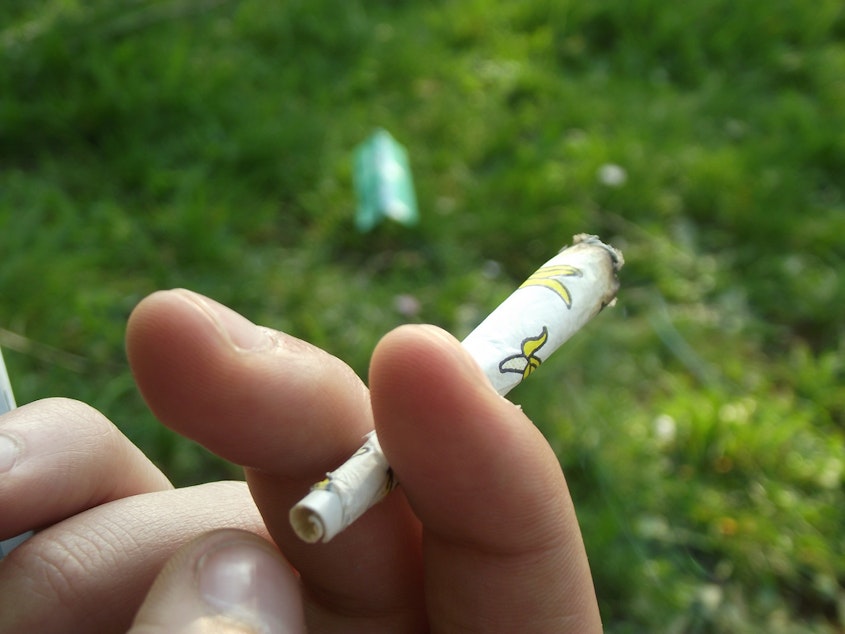Is your joint ruining the environment?

Washington state is dealing with a lot of weed waste — and we're not talking about the stuff you dig out of your yard.
Our legal marijuana industry is creating a new waste problem. Seattle journalist Kristen Millares Young covered the story for The Washington Post and spoke to KUOW’s Angela King about it.
So, Washington state is partly to blame for all the plastic packaging of marijuana products?
The state was trying very hard to reduce the amount of contamination or diversion of the supply chain from marijuana growers to retailers to consumers. But they weren't thinking about the combined impact of all of that packaging going into landfills.
Individual pre-rolled joints come in plastic “doob tubes” that actually aren't recyclable. In California, Oregon and Colorado, $217 million in doob tubes were sold in just one 12-month period. And so if you think about that spread out over the dozens of states that are legalizing cannabis and all of that material going into landfills, it gives you a sense of the scope of the problem.
Sponsored
Why can’t doob tubes be recycled?
There are a couple of reasons. There are some limited options available in biodegradable plastic that are really not priced to be on the market and are outliers. But the majority of doob tubes are made of plastic that is already non-recyclable because it's cheaper. But even those that are made out of recyclable plastic, unfortunately the recycling machines have openings that allow smaller items to fall through. So any piece of plastic smaller than 3 inches across is going into the landfill.
What can industry do to help lessen the problem?
There are a couple things at play here. It is cheaper to use this single-use plastic, which is non-recyclable. And laws around financing for cannabis farmers [restrict what] they can and cannot write off the retail market. So something that costs them an extra 20 cents is going to cost the consumer a dollar. And there is so much competition to get onto the limited retail shelf that that kind of price-point difference could really put an individual grower out of business.
(By the way, Hempfest starts Friday in Seattle. It's being held at Myrtle Edwards Park on Elliott Bay, beginning at noon.)
Sponsored
(This interview has been edited for clarity and length.)


